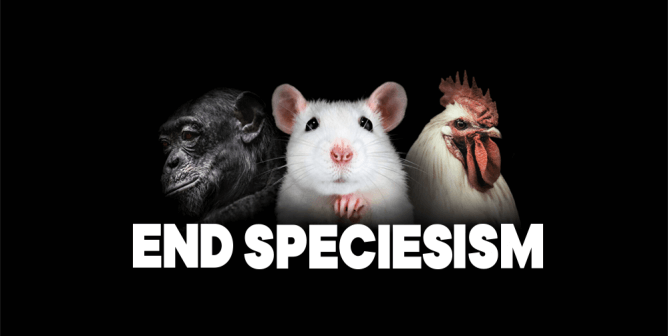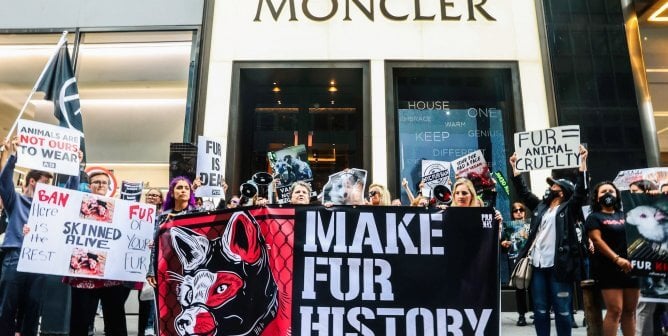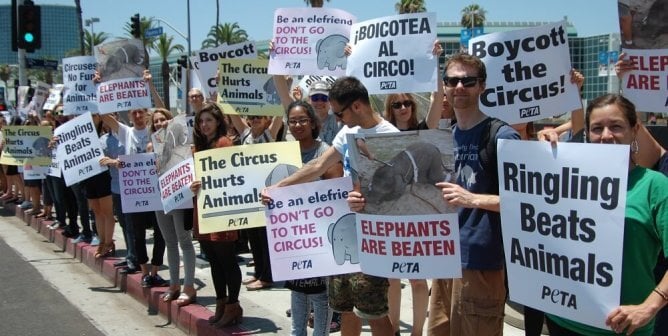We Never Gave Up: PETA’s Triumph Over Ringling Bros.
Thirty-six years of PETA protests against 146-year-old Ringling Bros. and Barnum & Bailey Circus—in which members and supporters revealed that animals were beaten and otherwise abused—have reduced attendance to the point of no return.
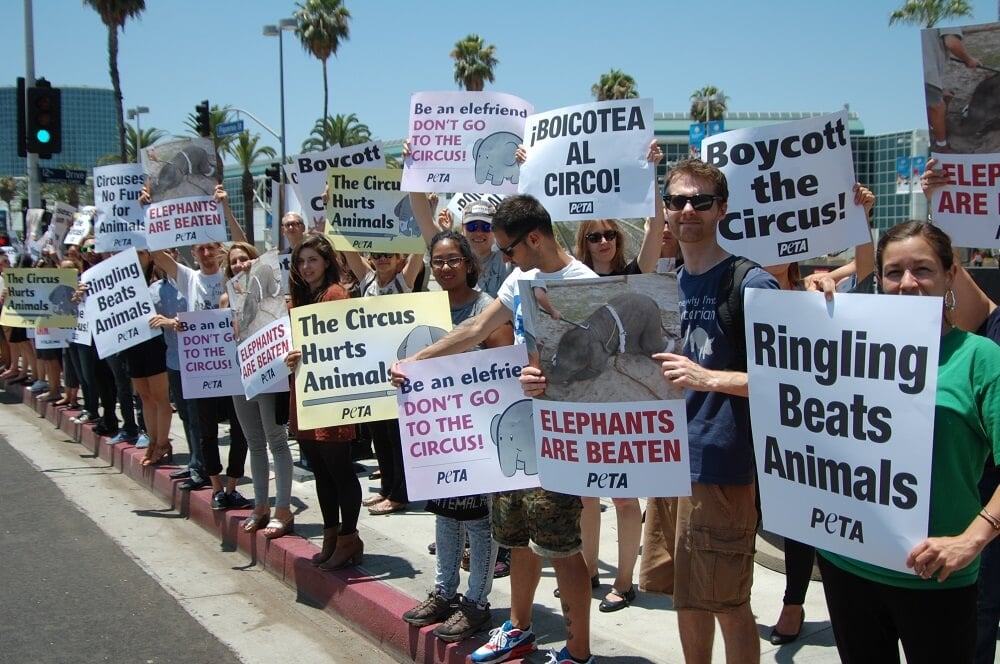
Since our very beginning, PETA has been Ringling’s most vocal opponent and nemesis.
Ringling’s decision to shut down comes after PETA worked relentlessly for decades to ensure that every single person thinking of attending one of the outfit’s performances knew exactly the kind of cruelty that his or her ticket purchase would be supporting.

In recent years, you would have been hard-pressed to find a single Ringling performance at which PETA supporters weren’t outside encouraging folks to ditch the cruelest show on Earth. Thousands of persistent and dedicated people participated in protests against the circus. Some dressed up in costumes, others handed out leaflets to parents and gave stickers and coloring books to kids, and many held up signs with messages such as “Ringling Beats Animals.”
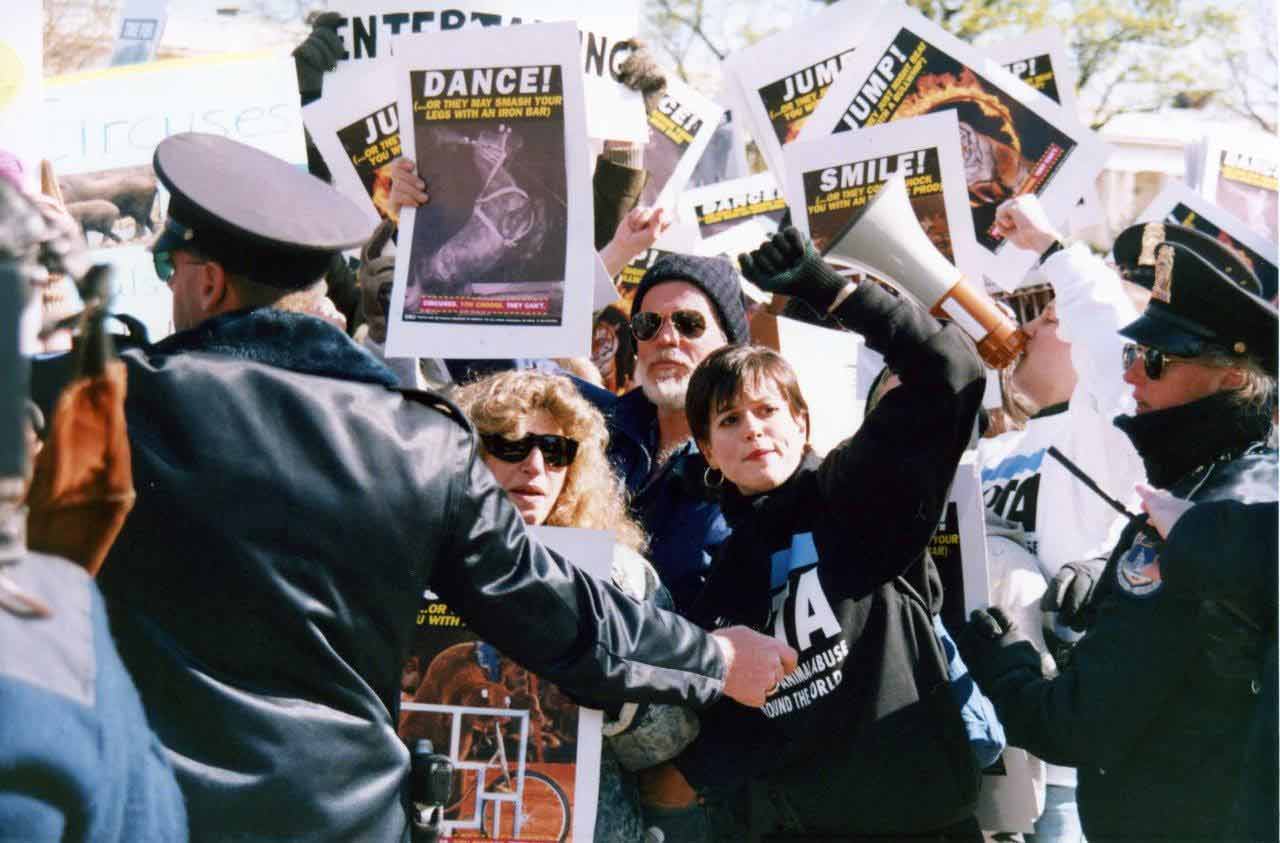
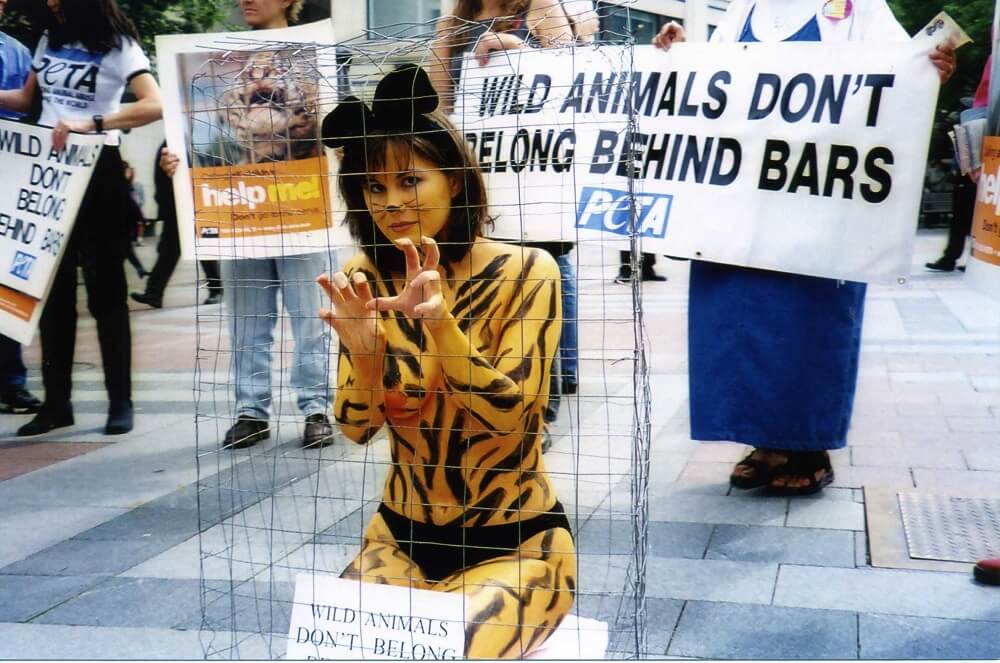
Given how often we declared our presence, some might say that protesting a Ringling show became a rite of passage in standing up to animal abuse.
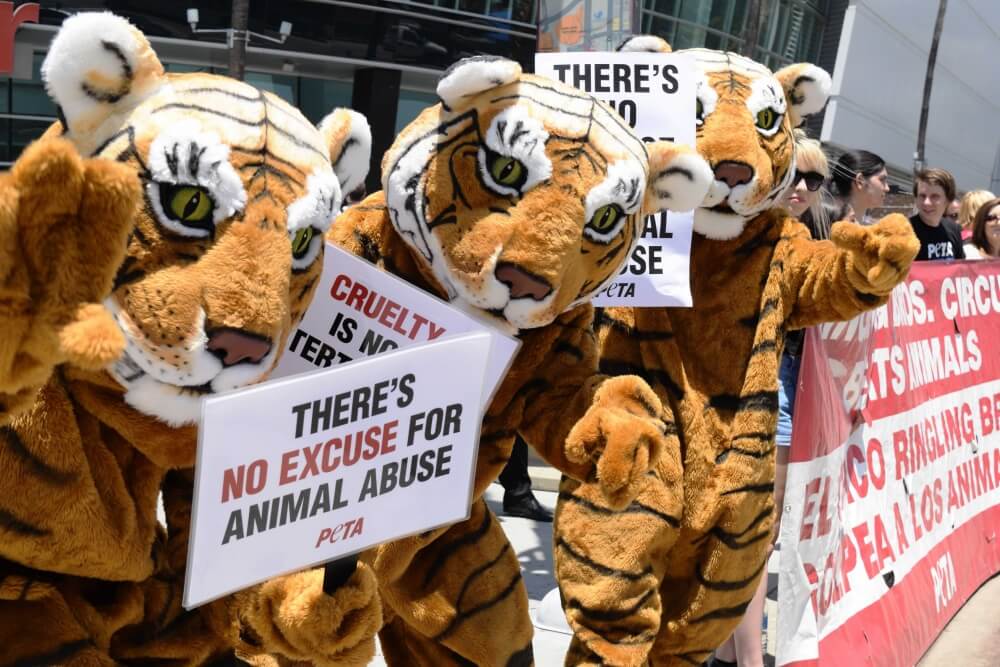
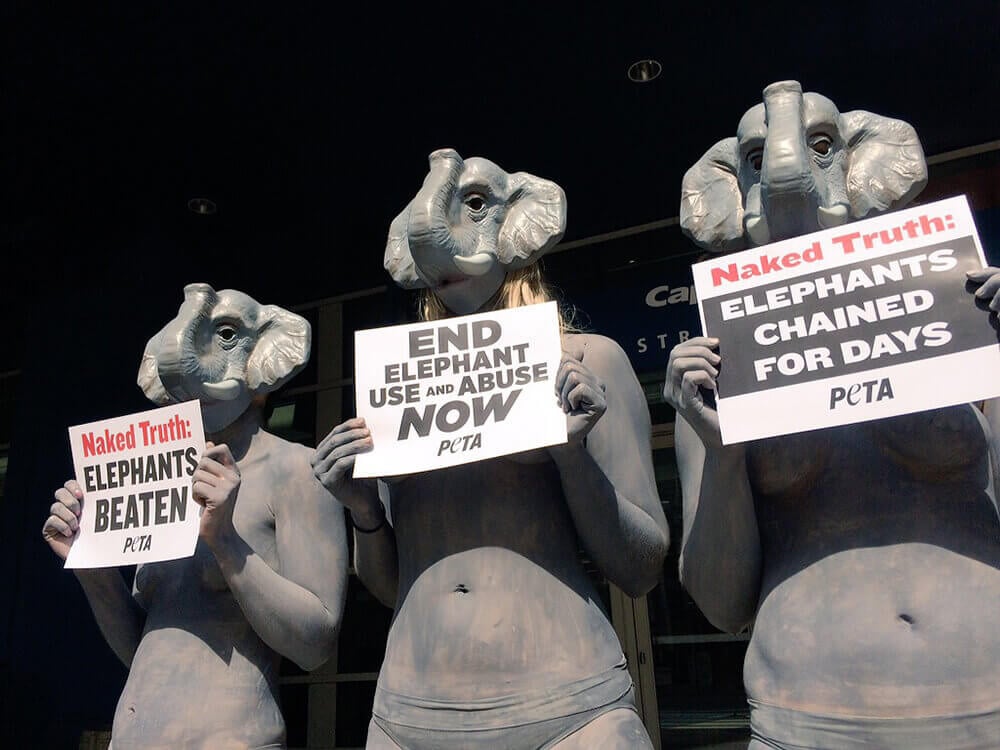
While it may once have taken something as dramatic as dumping two tons of manure in front of Ringling headquarters or sitting in a cage, painted like a tiger, to persuade media outlets to report on circus cruelty rather than running a puff piece about the company’s latest ticket-selling gimmick, reports of demonstrations against the circus and its latest federal Animal Welfare Act (AWA) violations soon became the norm.
We filed complaints with the U.S. Department of Agriculture (USDA) following the deaths of Kenny—a baby elephant Ringling forced to perform while desperately ill—and a 4-year-old elephant named Benjamin, who drowned while swimming in a pond after a trainer began tormenting him with a bullhook. We also did so after a lion named Clyde baked to death in a boxcar and a baby elephant named Riccardo broke his legs while being trained.
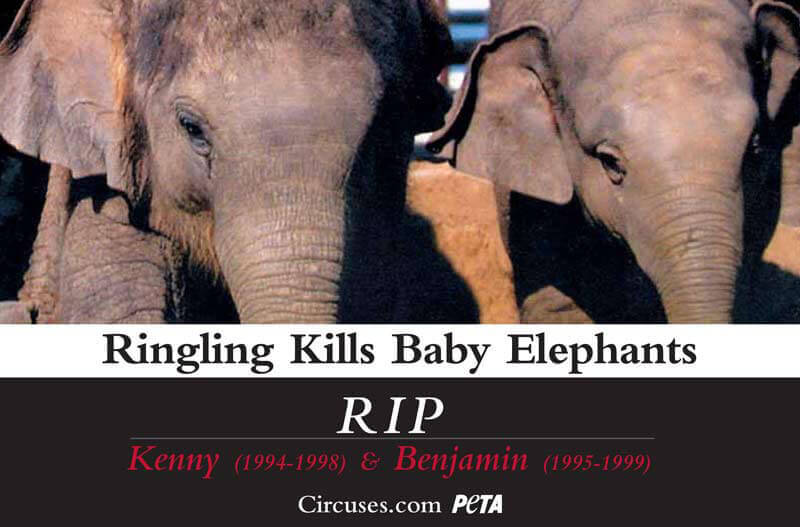
It took years of pressure to get the agency’s Office of the General Counsel to take action on the serious abuse that we’d uncovered, and when it finally did, the USDA slapped Ringling with the largest fine ever imposed on an animal exhibitor: more than a quarter of a million dollars.
With the help of a whistleblower who, dying of cancer and acting on his wife’s wishes, sent us photographs showing how Ringling breaks the spirits of baby elephants by tying them down and beating them, we revealed the circus’s cruelty to millions.
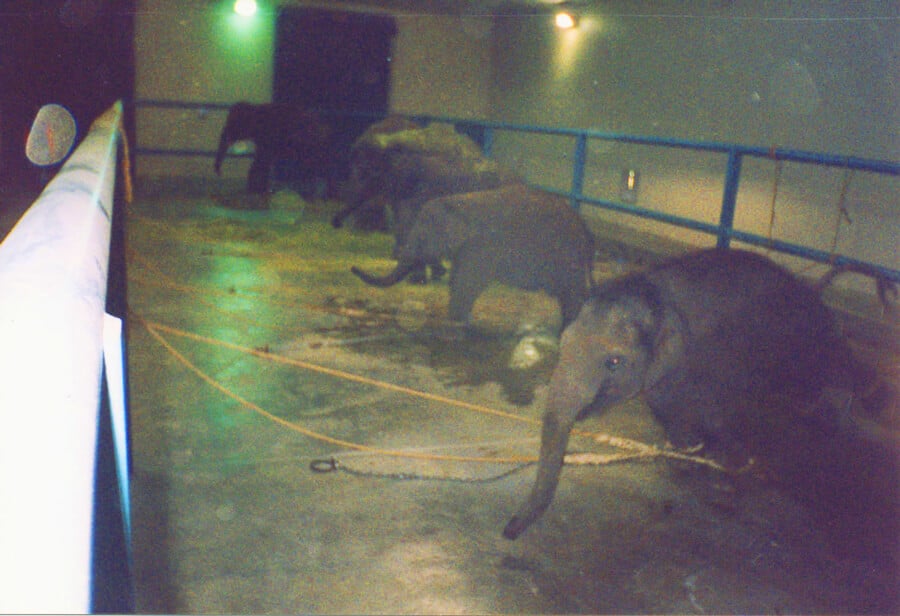
Ringling trainers would drag baby elephants from their mothers’ sides and force them to stand on a concrete floor for as much as 23 hours a day for six months or longer. Some were held down with ropes so tight that they suffered from deep and painful cuts. These photographs were Ringling’s Blackfish, and we held them up outside every show.
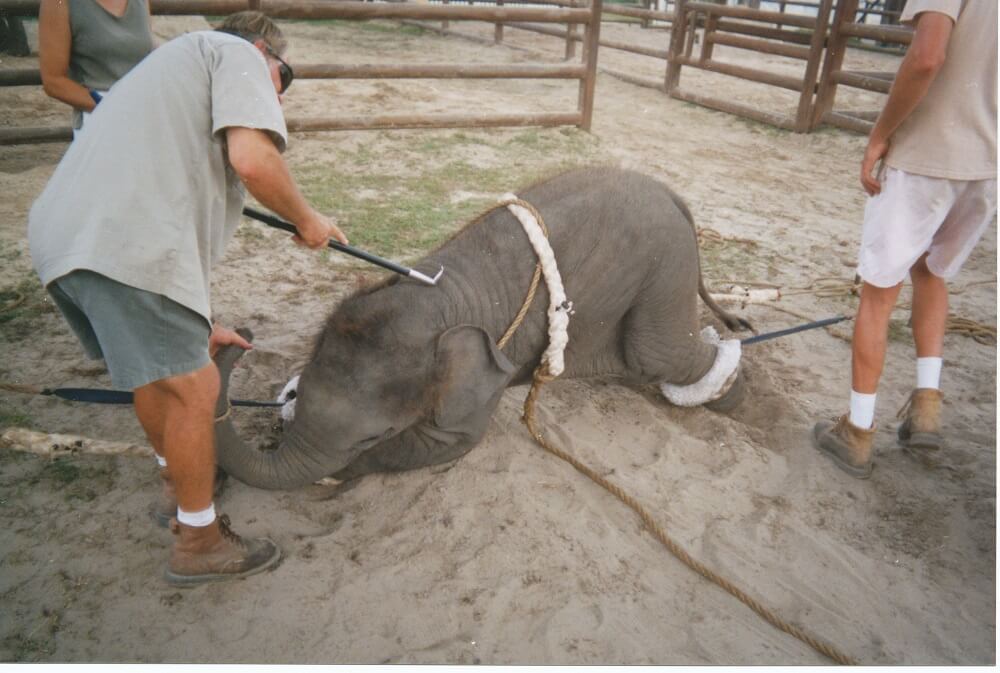
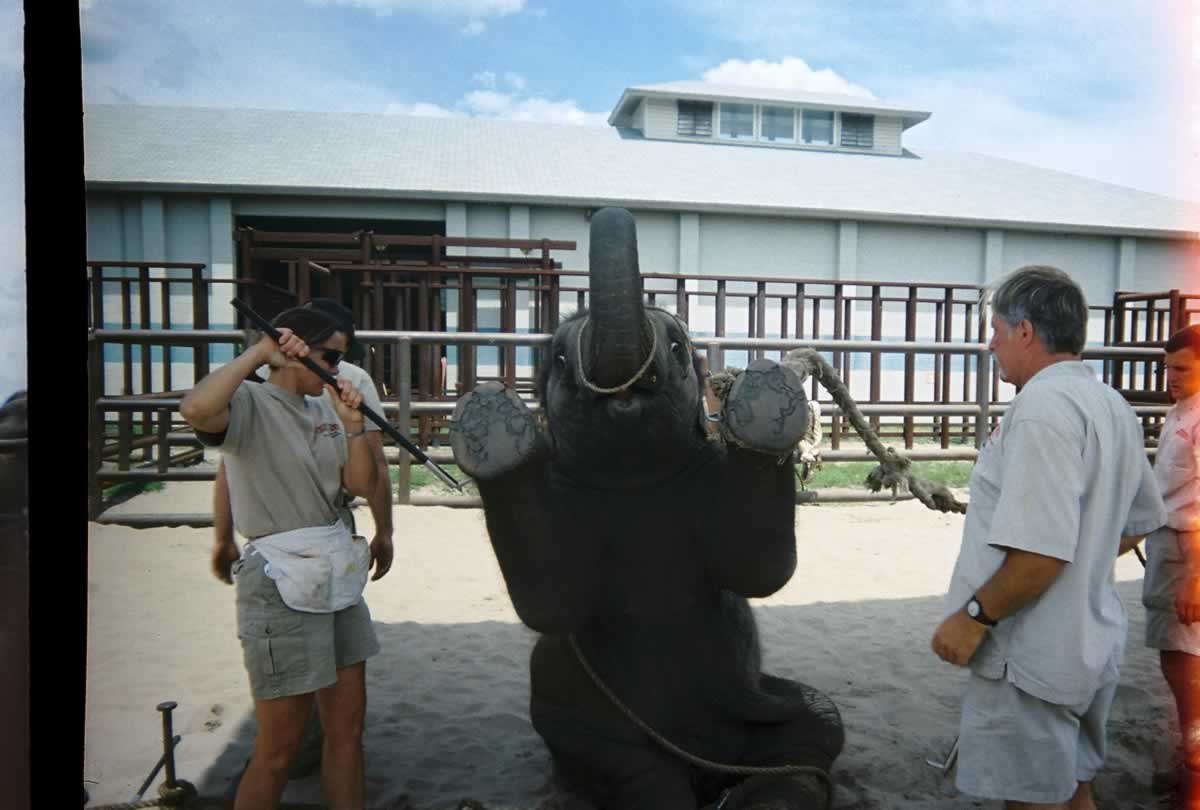
With the help of eyewitnesses, we captured tons of photos and hours of video revealing that Ringling employees beat and jabbed elephants with bullhooks—and we showed that the outfit used a gray blood coagulant to hide animals’ bleeding wounds.
By the end, Ringling had been cited more than 150 times for violations of the AWA.
The images of this abuse, held aloft by our demonstrators at nearly every Ringling show, caused many would-be circusgoers to tear up their tickets and walk away. Our corporate division helped persuade major Ringling sponsors—including Denny’s, Sears, Ford, Kellogg’s, MasterCard, and Visa—to drop the company.
Celebrities also wanted to help end animal abuse in circuses. Over the years, PETA has teamed up with numerous cultural icons to tell people that trainers whip tigers, beat elephants, and deny all animals in circuses everything that’s natural and important to them—all so that they’ll perform meaningless tricks.
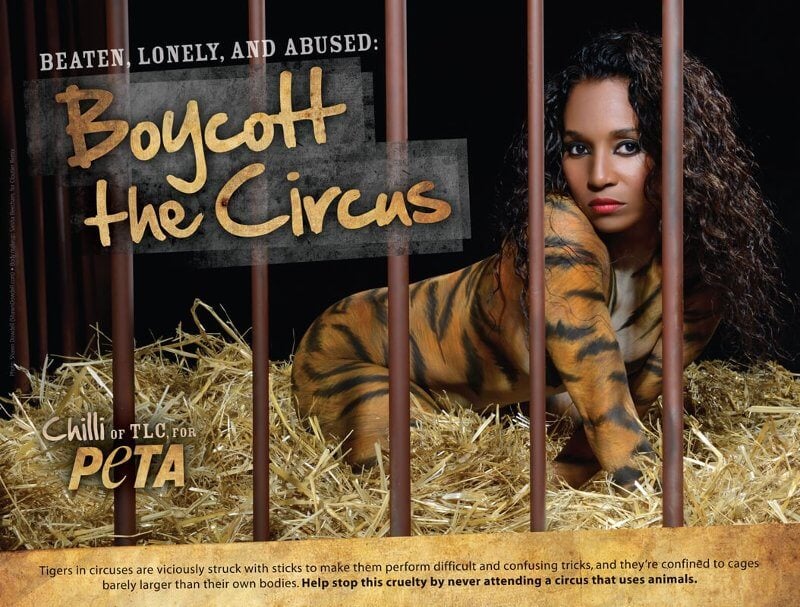
We created Ellie—an impressive robotic elephant voiced by Quantico actor Priyanka Chopra—who went on the road, visiting tens of thousands of schoolchildren across the U.S. to encourage them to think about animals and say no to circuses.
One clear example of what a dramatic shift we’ve seen in attitudes toward animal circuses is in the legislative sphere.
Back in 1995, Newt Gingrich helped Ringling bring a sad parade of 14 captive elephants to Capitol Hill for an event with members of Congress—and the circus made him an honorary ringmaster. PETA protestors were outside being arrested during the event, moving one senator to give an impassioned plea for elephants on the Senate floor. But despite this, much of the coverage that day focused on the circus’s spectacle rather than the abuse that we were there to expose.
Fast-forward to today, and thanks to our members’ calls, e-mails, and letters to legislators and our experts’ testimony, many cities—and even the entire states of California and Rhode Island— have banned the use of bullhooks, a move that helped force Ringling to take elephants off the road in 2016. Many times, we thumped a bullhook down on a table so that legislators could appreciate the implement’s abusive power. (Often, security actually barred us from bringing them into hearings, rightfully identifying them as weapons.) Without bullhooks, it was much harder for Ringling to bully elephants into performing.
Ringling’s elephant exploitation received another devastating blow when PETA prevailed in an open-records request and obtained documents proving that, at least since 2010, elephants owned by the circus had tested positive for the human strain of tuberculosis (TB). TB is highly transmissible from elephants to humans, even without direct contact, which is why the outfit tried to keep this secret for years.
Ringling’s final show will take place roughly a year after it stopped dragging exploited elephants across the country.
In March 2015, when Ringling first announced that it would no longer use elephants in its shows, it said that it would phase them out completely by 2018. But thanks to ever-growing public opposition to the outfit, by May 2016, the elephants were off the road.
Ringling relocated them to its misleadingly named “Center for Elephant Conservation” (CEC) in Polk City, Florida, where it already held dozens of other elephants. However, life at the CEC—where elephants are chained on a daily basis, subjected to abusive training methods, deprived of opportunities to socialize, and forced to breed—is far from “retirement.” We’ll continue to stand up for these animals until they’re moved to a reputable, accredited sanctuary.
While elephants received a small measure of relief from performing, the lions, tigers, camels, donkeys, pigs, kangaroos, llamas, and other animals Ringling still exploited remained doomed to miserable lives of suffering and deprivation on the road.
So rather than letting up, PETA upped the ante in its trademark fashion and turned its attention to the plight of the big cats the circus held captive.
Eventually, Ringling executives learned that dropping elephants while continuing to use tigers and other captive animals in their shows wasn’t nearly enough to overcome years of relentless protests and complaints of animal abuse. Less than a year after withdrawing its elephant acts, May 21, 2017, marks the last performance of the cruelest show on Earth.
The days of abusing animals for cruel entertainment—whether in traveling circuses or in watery ones such as SeaWorld—are very much numbered.
None of these achievements would ever have been possible without the efforts of people who want, just as we do, to end the horrors inherent in exploiting animals for entertainment.
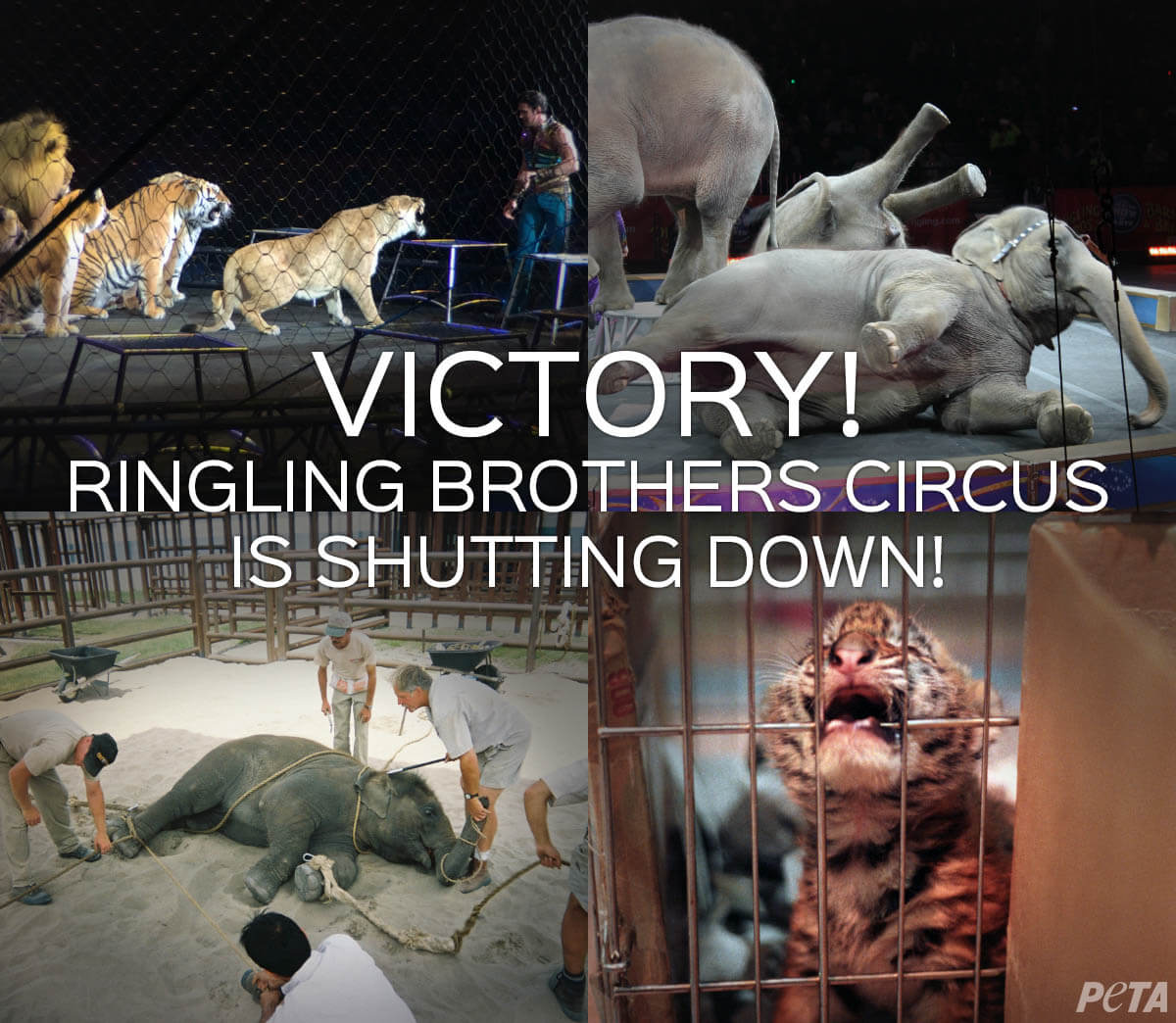
It took more than three decades of relentless demonstrations, ad campaigns, agency meetings and complaints, eyewitness investigations, school talks, celebrity support, legislation, corporate pressure, and more to win this landmark victory. Ringling’s closure is a reminder that, with determination, we can achieve meaningful progress for animals.
PETA couldn’t have done this without our members and supporters who wrote letters or made phone calls to legislators, attended protests, or spread the word on social media. Thank you. And now, onward!

